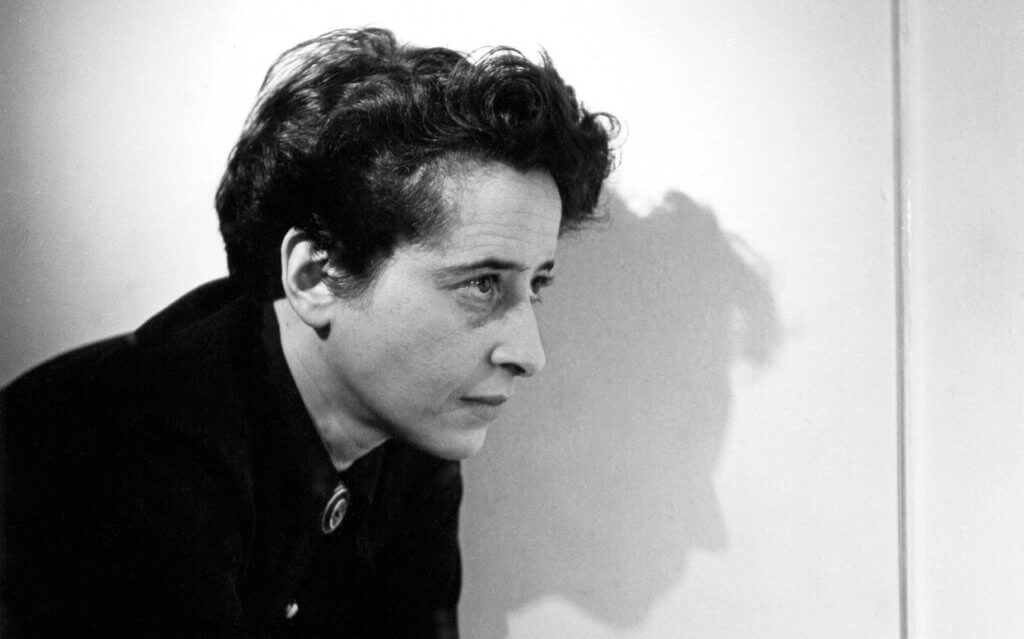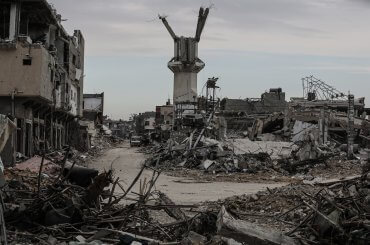In the aftermath of two world wars, Hannah Arendt recognized that the concept of “citizenship” came hand in hand with statelessness. In her groundbreaking 1951 essay “The Perplexities of the Rights of Man,” published in “The Origins of Totalitarianism,” she wrote of a wave of refugees, stateless people and expatriates on a scale the world had never seen. “What is unprecedented, she declared, “is not the loss of a home but the impossibility of finding a new one.”
Nowadays Palestinians find themselves in the exact same condition.
The origins of the Palestinian stateless condition came after 1948 when around 700,000 were ethnically cleansed from their homes by Zionist militias. According to UNWRA (The United Nations Relief and Works Agency for Palestine), Palestinian refugees are “persons whose normal place of residence was Palestine during the period 1 June 1946 to 15 May 1948, and who lost both home and means of livelihood as a result of the 1948 conflict.”
On July 5, 1950, only a few years after Israel’s inception, the Law of Return was approved, granting every Jew all over the world the right to live in Israel and gain Israeli citizenship. This, then, creates the unbearable reality where the indigenous, native Palestinians of the land cannot go back to their homeland and reunite with their families, while any Jewish person who has no connection to the state of Israel, and can’t even speak Hebrew, can gain Israeli citizenship.
As a result, the adamant struggle of Palestinians to gain the right of return ensued especially after the Six Days War in 1967, when Israel significantly increased the boundaries of its territory and the occupation of the West Bank, Gaza Strip, East Jerusalem and the Golan Heights began.
This situation places Palestinian refugees in a unique condition of statelessness, one that is different from other refugees and/or immigrants. Palestinian refugees are scattered all over the world; not all of them are stateless. Some are citizens in the country where they live. For example both Jordan and Lebanon have granted citizenship to more than 100,000 Palestinians, while even greater numbers continue to be stateless and live in refugee camps in those same countries.
According to UNRWA, “nearly one-third of the registered Palestine refugees, more than 1.5 million individuals, live in 58 recognized Palestine refugee camps in Jordan, Lebanon, the Syrian Arab Republic, the Gaza Strip and the West Bank, including East Jerusalem.” What’s more, “the refugees in camps do not ‘own’ the land on which their shelters were built, but have the right to ‘use’ the land for a residence.”
Meaning, Palestinian refugees living in UN camps are completely stateless, in a condition akin to what Arendt theorized in her “The Perplexities of the Rights of Man.” She wrote, “Suddenly, there was no place on earth where migrants could go without the severest restrictions, no country where they would be assimilated, no territory where they could found a new community of their own.”
In the years since they became refugees, Palestinians experience new regulations that entrench their exclusion. In Lebanon, for example, Palestinian refugees are barred from more than 20 white collar professions and a 2001 law prohibits them from buying property.
Aside from being stateless in the countries they reside, Palestinians also do not have the legal right to go back to their native homeland. As Arendt puts it, with special reference to the Jews in World War II: “The first loss which the rightless suffered was the loss of their homes, and this meant the loss of the entire social texture into which they were born and in which they established for themselves a distinct place in the world.”
In some cases, Palestinian refugees stand outside the judicial order even when they are citizens – even within Israel itself, Palestinian citizens are subjected to over 65 laws denying them basic equal, civil and human rights, culminating in Israel’s most recent legislation of the “Nation-State Law.” This law enshrines Israel’s apartheid-like discrimination into its equivalent of a constitution by codifying “the right to self-determination” is exclusive to “the Jewish people.”
Arendt concluded stateless people are ardent exemplars of how human rights are intrinsically connected to national rights, with the latter outweighing and grounding the former. Those who do not belong to a specific political community, like Palestinians, stand outside the juridical order and are therefore regarded as undeserving of the security that should be provided by the state. As the professor of philosophy at the New School Richard Bernstein piercingly remarks in his review of Arendt, “throughout history people have been uprooted from their homes.”
What is ironic, is that Arendt’s analysis was originally concerned with the condition of Jews during and in the aftermath of World War II, while presently it is the Palestinians who find themselves in an analogous situation of rightlessness, mostly in virtue of the creation and expansion of the state of Israel. Arendt’s concepts and thesis, hence, can help us shed light on the many arduous difficulties and dilemmas related to the question and aporia of human rights in the contemporary world and the existence of the nation-state.



“For example both Jordan and Lebanon have granted citizenship to more than 100,000 Palestinians, while even greater numbers continue to be stateless and live in refugee camps in those same countries.”
Interesting claim. Interesting as in being completely wrong on Jordan. So, author, please google the following questions. How many Palestinians did Jordan give citizenship to? How many Palestinians in Jordan live in refugee camps? How many Palestinians in Jordan remain stateless?
Why the deliberate lie?
“the right to self-determination” is exclusive to “the Jewish people.”
“right to national self-determination in the State of Israel is unique to the Jewish People.”